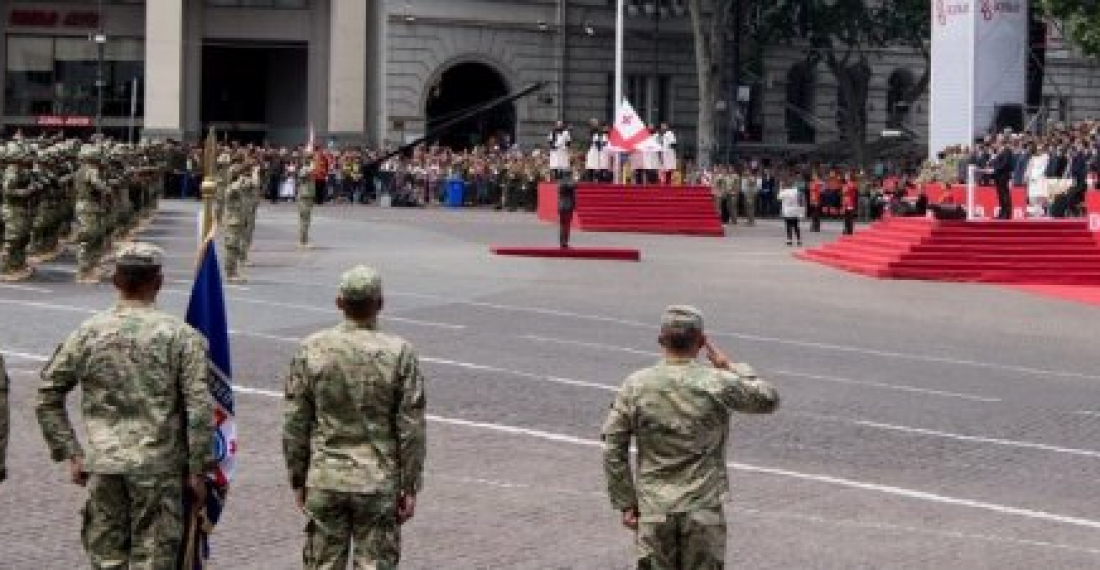A celebration marking the 100th anniversary of the first Georgian republic and modern statehood was held in the capital Tbilisi on Saturday, 26 May, and mirrored in a number of other Georgian cities, including Batumi and Kutaisi.
President of Georgia, Giorgi Margvelashvili led dignitaries that included, Prime Minister Giorgi Kvirikashvilu, Parliamentary Speaker Irakli Kobakhdize and Catholicos Patriarch Ilya II.
A number of foreign guests are also in the Georgian capital for the celebrations. They are led by the President of the European Comission, Jean Claude Juncker, and include the Presidents of Armenia, Finland, Slovakia, Latvia, Lithuania and Poland.
Addressing the main ceremony of the celebrations in Tbilisi, President Juncker told the assembled Georgians:
Georgia is a country that has always been part of Europe and has always looked towards Europe. We are linked by history and by geography. Our fates and our destinies have long been intertwined. But I want this special occasion to be the start of the next chapter in our common story. I have always argued that the European Union must send a message of hope to Georgia and especially to its youth. So I want us to break down more of the barriers that still exist between us, and step up our support to each other, building on the progress we have already achieved.
I am delighted that more than a quarter of a million Georgians have already visited Europe without a visa since March of last year. I hope many more will visit us soon.
I also hope that many more will join the thousands of Georgian teachers and students that have come to Europe to study or teach thanks to the Erasmus+ programme. I look forward to the first students being welcomed at the new European School in this city this September.
Georgia and the European Union always stand up for each other. We will always support Georgia's sovereignty and territorial integrity within its internationally recognised borders. And standing in front of your brave soldiers, I also want to thank you for Georgia's invaluable role in EU peace-keeping operations, serving noble causes.
Long live Georgia, love live Europe! May they live together forever.
Read more: 1918: The golden period in Georgian history
source: commonspace.eu
photo: Celebrations marking the 100th anniversary of the first Georgian republic on Tbilisi's Republic Square on 26 May 2018 (picture courtesy of the European Commission).






